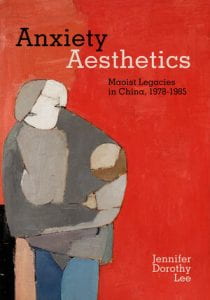 NEW PUBLICATION
NEW PUBLICATION
Anxiety Aesthetics: Maoist Legacies in China, 1978-1985
By Jennifer Dorothy Lee
University of California Press, 2024
Anxiety Aesthetics is the first book to consider a prehistory of contemporaneity in China through the emergent creative practices in the aftermath of the Mao era. Arguing that socialist residues underwrite contemporary Chinese art, complicating its theorization through Maoism, Jennifer Dorothy Lee traces a selection of historical events and controversies in late 1970s and early 1980s Beijing. Lee offers a fresh critical frame for doing symptomatic readings of protest ephemera and artistic interventions in the Beijing Spring social movement of 1978–80, while exploring the rhetoric of heated debates waged in institutional contexts prior to the ’85 New Wave. Lee demonstrates how socialist aesthetic theories and structures continued to shape young artists’ engagement with both space and selfhood and occupied the minds of figures looking to reform the nation. In magnifying this fleeting moment, Lee provides a new historical foundation for the unprecedented global exposure of contemporary Chinese art today.
ABOUT THE AUTHOR
Jennifer Dorothy Lee is an associate professor of East Asian art at the School of the Art Institute of Chicago. Anxiety Aesthetics is her first book. Lee’s article on socialist abstraction and the painter Wu Guanzhong will be out in positions: asia critique in May 2024.
Posted by: Jennifer Lee <jlee241@artic.edu>










